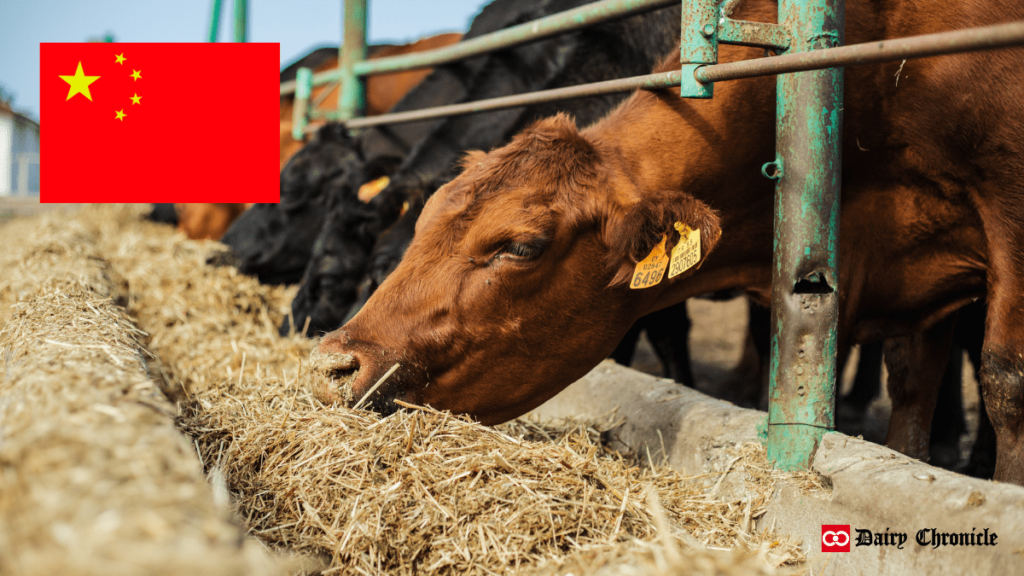China’s progress towards dairy self-sufficiency is impacting global dairy exports. With increased domestic production and reduced imports, China’s reliance on U.S. whey powder continues due to its stagnant cheese production. These shifts are altering global dairy trade dynamics.
China’s dairy industry has undergone a significant transformation, moving from heavy reliance on imports to achieving substantial self-sufficiency. This change has notable implications for global dairy markets, particularly affecting dairy exports from major producers like the United States.
China’s Dairy Self-Sufficiency Strategy
In recent years, China has focused on increasing its dairy self-sufficiency through various strategic measures:
- Stockpiling Efforts: Approximately four years ago, China began accumulating substantial reserves of milk powder. This strategy was designed to stabilize domestic supply and reduce the need for imports.
- Domestic Production Boost: In 2018-2019, China implemented a farm bill aimed at enhancing dairy production. This policy has led to a significant annual increase in milk production by 11 million metric tons.
Milk Production Achievements
By 2023, China achieved its target dairy production of 40.5 million metric tons, surpassing its goal by one year. This accomplishment represents a substantial boost in milk output, equivalent to adding approximately 25 billion pounds of milk over five years. This growth aligns with China’s broader agricultural policy objectives to enhance food security and reduce dependence on foreign dairy products.
Data Summary
Here is a summary of key data related to China’s dairy industry and its global impact:
| Metric | Value |
| Annual Dairy Production (2023) | 40.5 million metric tons |
| Increase in Production (Over 5 Years) | 25 billion pounds of milk |
| Self-Sufficiency Rate | Approximately 85% |
| Reduction in Imports | Significant decrease in liquid milk, packaged milk, and whole milk powder |
| Whey Powder Import Significance | Essential for feeding baby pigs |
| U.S. Exports Impact | Continued demand for whey powder, less for other dairy products |
Impact on Dairy Imports
China’s progress in dairy self-sufficiency has led to a significant reduction in imports:
- Self-Sufficiency Rate: China’s self-sufficiency in dairy products has increased from 70% to approximately 85%, reflecting the country’s growing capacity to meet domestic demand with local production.
- Reduced Imports: Imports of liquid milk, packaged milk, and whole milk powder have decreased as a result of increased domestic production. This shift impacts global dairy trade, particularly affecting suppliers who previously depended on the Chinese market.
Whey Powder and Cheese Production
Despite the reduction in other dairy imports, China continues to import whey powder, a byproduct of cheese production. Whey powder is crucial for feeding China’s significant pig population, which relies on this ingredient for livestock nutrition. Additionally, China’s cheese production capabilities have not expanded significantly, maintaining a steady demand for U.S. whey powder exports.
Global Dairy Market Implications
China’s shift towards dairy self-sufficiency has several implications for the global dairy market:
- Export Dynamics: The reduction in China’s dairy imports affects global trade dynamics. Dairy exporters who previously relied on the Chinese market must adapt to the changing demand patterns.
- Market Opportunities and Challenges: U.S. dairy producers and other exporters need to navigate the evolving market conditions, focusing on maintaining essential product supply, such as whey powder, while exploring new market opportunities and addressing potential challenges.
Strategic Responses and Future Outlook
In response to these changes, global dairy exporters are adjusting their strategies:
- Diversification: Dairy producers are exploring new markets to compensate for reduced demand from China. Expanding into emerging markets and strengthening existing trade relationships are key strategies.
- Product Innovation: To stay competitive, dairy companies are investing in product innovation, including new formulations and value-added products that cater to evolving consumer preferences.
China’s progress towards dairy self-sufficiency marks a significant shift in the global dairy market. The country’s increased domestic production and reduced reliance on imports impact global trade dynamics, particularly for dairy exporters. While China continues to import whey powder, its reduced demand for other dairy products requires global suppliers to adapt and explore new opportunities. Strategic adjustments and market diversification will be crucial for navigating this evolving landscape and maintaining a competitive edge in the global dairy market.



